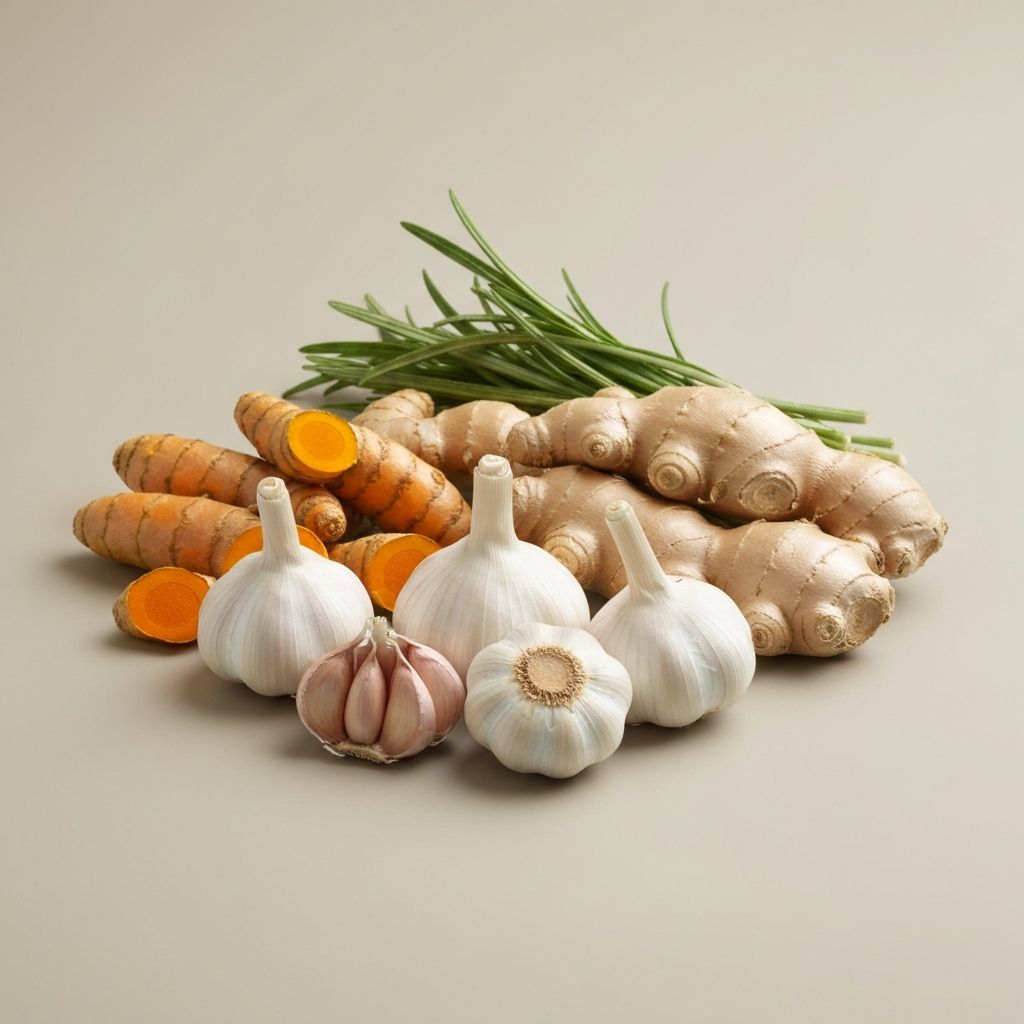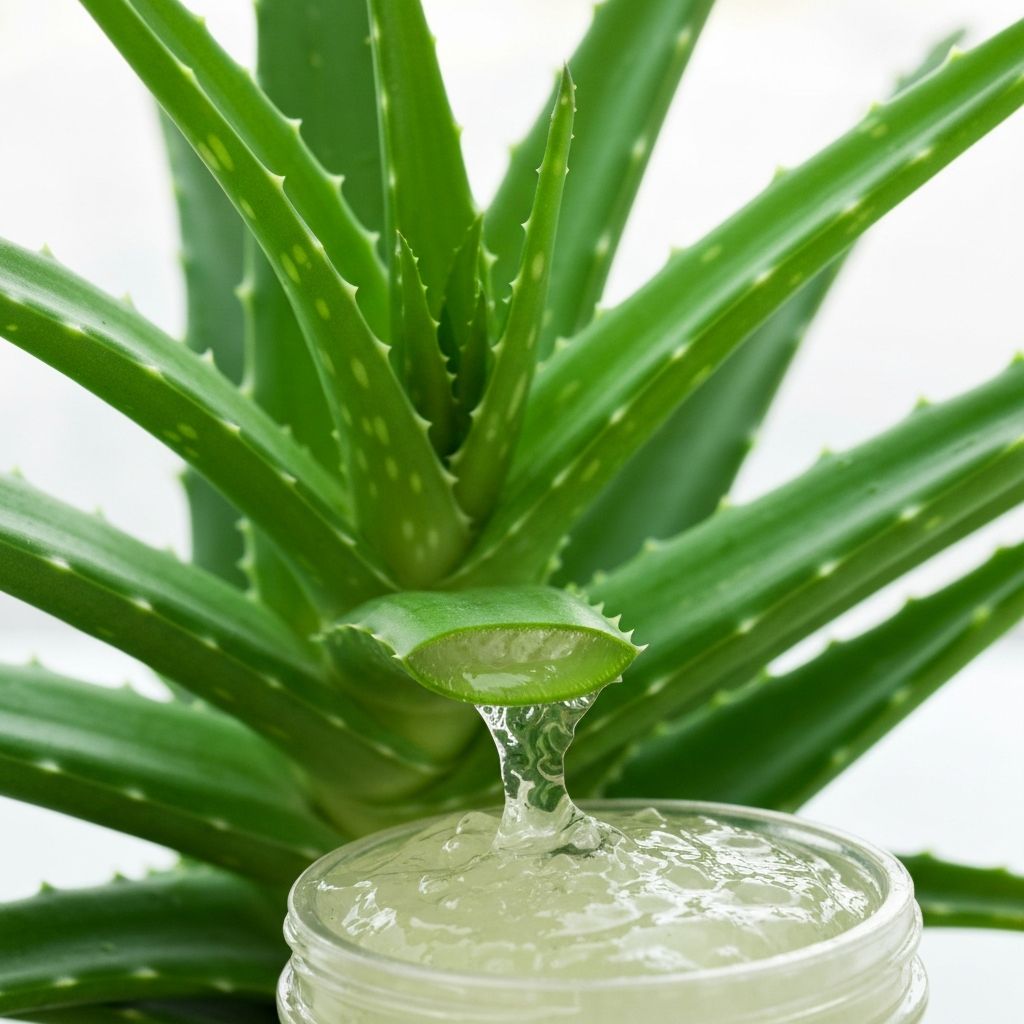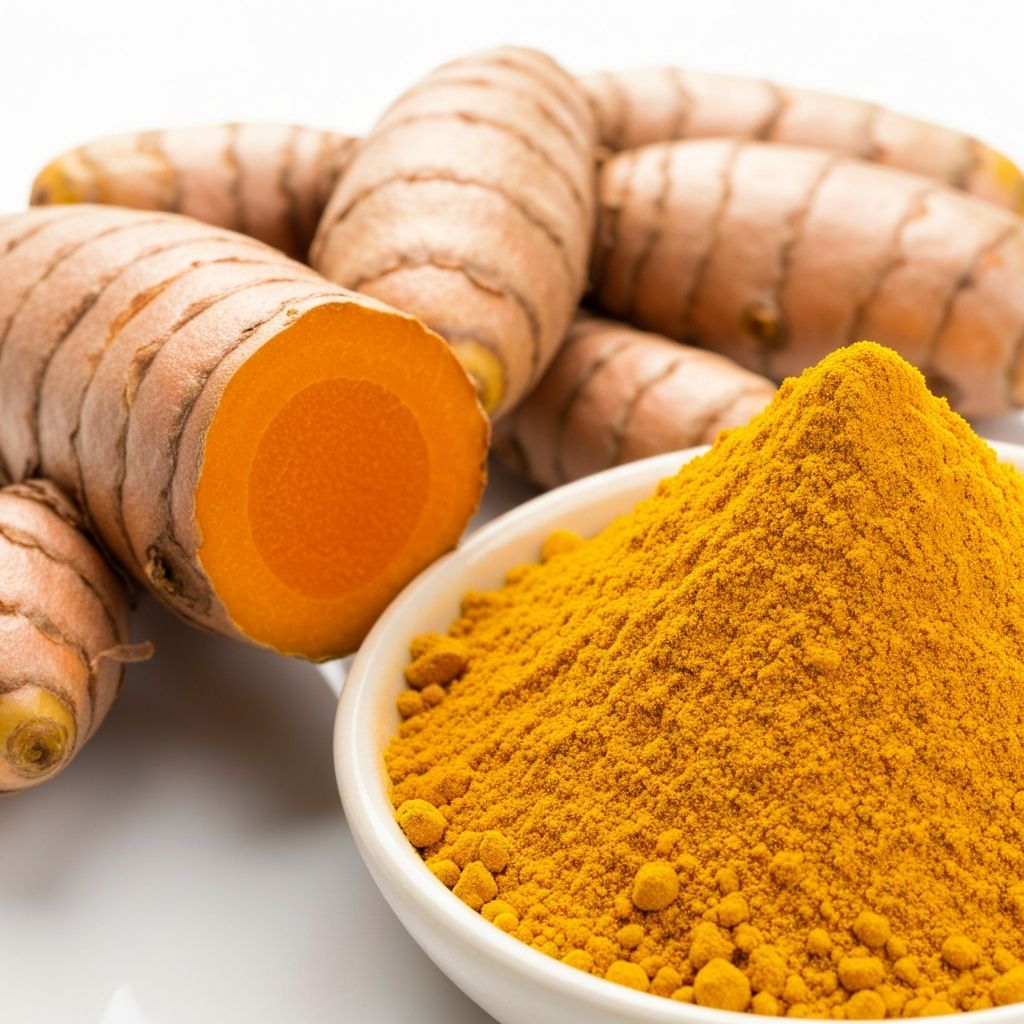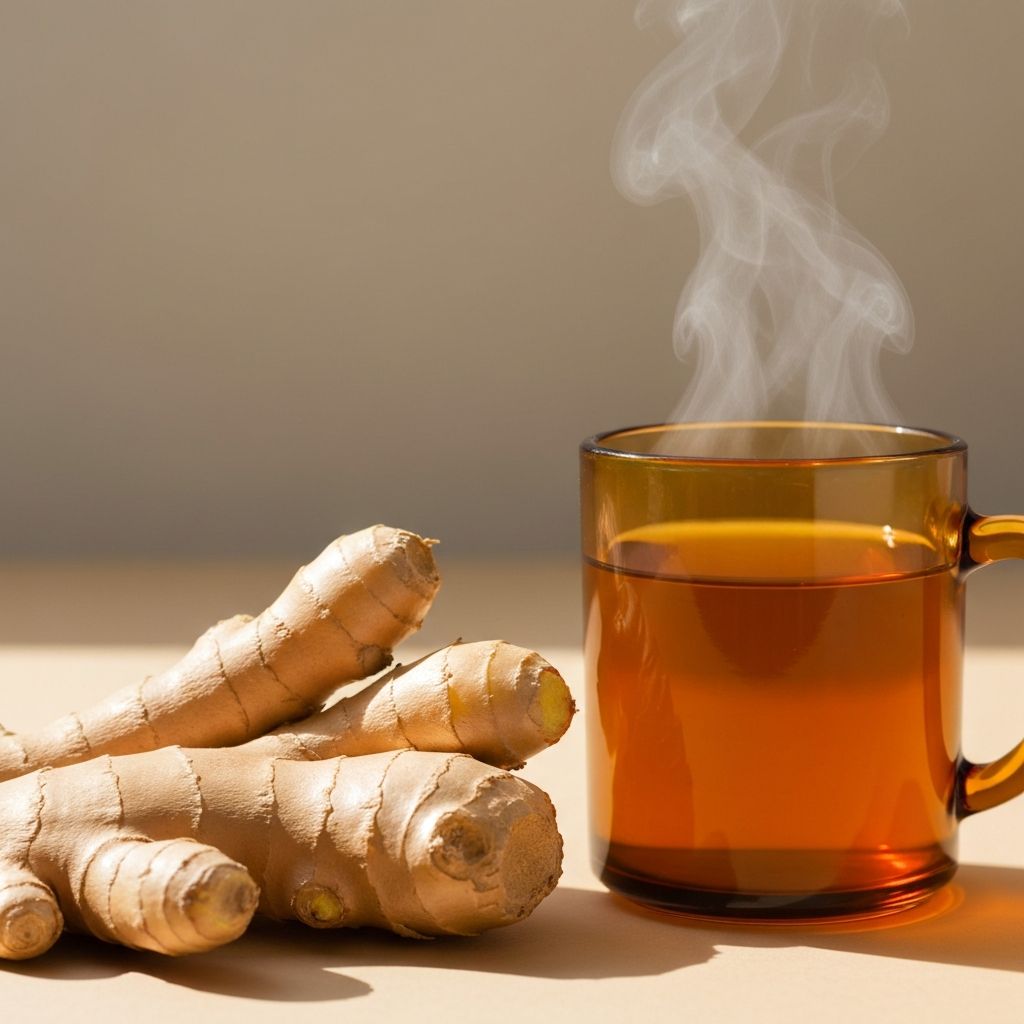7 Traditional Herbs for Natural Immunity Support
What You'll Learn
- Learn about natural remedies and their benefits
- Discover gentle, traditional home approaches
- Get expert tips for holistic wellness
- Understand proper usage and precautions
Explore seven traditional herbs that have been used to support immune system wellness and natural defense systems.
Your immune system is your body's natural defense network, and certain herbs have been scientifically proven to strengthen this vital system. These seven powerful herbs combine ancient wisdom with modern research to provide natural immune support that helps your body fight infections, reduce inflammation, and maintain optimal health year-round.
1. Echinacea (Purple Coneflower)
Echinacea is perhaps the most well-known immune-boosting herb, used by Native Americans for centuries. Its active compounds, including alkamides and polysaccharides, stimulate white blood cell production and enhance the body's natural defense mechanisms against viruses and bacteria.
Ingredients & Benefits
Highest concentration of active compounds
Fast absorption and convenience
Can be chewed for throat infections
Extraction medium for dried herbs
Step-by-Step Instructions
Use echinacea at first sign of illness for best results
For tea: steep dried root in hot water for 10-15 minutes
For tincture: add drops to water or take directly under tongue
Take for 7-10 days maximum, then take a break
💡 Continuous use may reduce effectiveness
Start with smaller doses to test tolerance
Pro Tips
- Most effective when taken at onset of symptoms
- Purple variety (E. purpurea) is most researched
- Combine with vitamin C for enhanced effect
- Quality matters - choose standardized extracts
2. Elderberry (Sambucus nigra)
Rich in anthocyanins and flavonoids, elderberry has potent antiviral properties that can reduce the severity and duration of cold and flu symptoms. Studies show it can cut illness duration by up to 4 days when taken early.
Ingredients & Benefits
High in immune-boosting anthocyanins
Natural antimicrobial and sweetener
Anti-inflammatory and warming
Antimicrobial and flavor enhancement
Cooking medium
Step-by-Step Instructions
Combine elderberries, ginger, and cinnamon in pot with water
Bring to boil, then simmer for 15-20 minutes
Strain out solids and let liquid cool slightly
Stir in honey when mixture is warm, not hot
💡 Heat destroys honey's beneficial enzymes
Store in refrigerator for up to 2 weeks
Pro Tips
- Take 1 tablespoon daily for prevention
- Increase to 1 tablespoon 3x daily when sick
- Never eat raw elderberries - always cook first
- Effective against both influenza A and B strains
3. Astragalus Root (Astragalus membranaceus)
A cornerstone of Traditional Chinese Medicine, astragalus is an adaptogenic herb that enhances immune function while helping the body cope with stress. It's particularly effective for preventing respiratory infections and supporting long-term immune health.
Ingredients & Benefits
Traditional preparation method
Easy to add to foods and drinks
Traditional cooking medium
Synergistic combinations
Step-by-Step Instructions
Add astragalus root slices to soups or broths while cooking
Simmer for 1-2 hours to extract compounds
Remove root pieces before serving
For powder: mix into smoothies, teas, or warm milk
Use daily for long-term immune support
Pro Tips
- Best used as prevention rather than treatment
- Safe for long-term daily use
- Combines well with reishi mushrooms
- Start with small amounts and increase gradually
4. Garlic (Allium sativum)
Fresh garlic contains allicin, a powerful antimicrobial compound that fights bacteria, viruses, and fungi. Regular garlic consumption has been shown to reduce the frequency of colds by up to 63% and decrease symptom severity.
Ingredients & Benefits
Highest allicin content when fresh
Enhances antimicrobial effects
Helps with garlic absorption
Vitamin C boost and flavor
Step-by-Step Instructions
Crush or chop garlic and let sit for 10 minutes
💡 This activates allicin formation
For raw consumption: mix with honey to reduce burn
For cooking: add garlic last to preserve compounds
Consume within 1 hour of crushing for maximum benefit
Take with food to reduce stomach irritation
Pro Tips
- Raw garlic is more potent than cooked
- Aged garlic extract is gentler on stomach
- Take with probiotics to support gut health
- Chew parsley to reduce garlic breath
5. Ginseng (Panax ginseng)
Known as the 'king of herbs' in Traditional Chinese Medicine, ginseng contains ginsenosides that enhance immune cell function and help the body adapt to stress. Regular use can reduce the risk of catching colds and flu by strengthening overall immunity.
Ingredients & Benefits
Most potent and well-researched form
Convenient daily consumption
Standardized potency
For tea preparation
Step-by-Step Instructions
Choose high-quality, standardized ginseng products
For tea: steep for 5-10 minutes in hot water
Take in morning as ginseng can be energizing
Cycle use: 2-3 weeks on, 1 week off
Start with lower doses and increase gradually
Pro Tips
- Korean red ginseng is considered most potent
- Avoid if you have high blood pressure
- May interact with blood-thinning medications
- Take on empty stomach for better absorption
6. Rhodiola (Rhodiola rosea)
This Arctic root is a powerful adaptogen that helps the body resist stress while boosting immune function. Rhodiola enhances the activity of natural killer cells and increases resistance to infections, especially during periods of physical or mental stress.
Ingredients & Benefits
Standardized for active compounds
Traditional tea preparation
Liquid form for easy dosing
Extraction medium
Step-by-Step Instructions
Take rhodiola on empty stomach for best absorption
Use in morning as it can be stimulating
For tea: steep dried root for 10-15 minutes
Start with lower doses to assess tolerance
Use during high-stress periods for immune support
Pro Tips
- Most effective during times of stress
- Look for 3% rosavins and 1% salidroside standardization
- Avoid late in day as it may affect sleep
- Combine with other adaptogens for enhanced effect
7. Turmeric (Curcuma longa)
Turmeric's active compound curcumin is a potent anti-inflammatory and immune modulator that helps balance immune responses. It enhances the activity of immune cells while reducing chronic inflammation that can weaken immunity over time.
Ingredients & Benefits
Highest bioavailability and potency
Convenient and shelf-stable
Increases curcumin absorption by 2000%
Healthy fats improve absorption
Natural sweetener and antimicrobial
Step-by-Step Instructions
Always combine turmeric with black pepper for absorption
Add healthy fats like coconut oil or milk
For golden milk: warm coconut milk with turmeric and spices
Take with meals to reduce stomach irritation
Use consistently for cumulative anti-inflammatory effects
Pro Tips
- Fresh turmeric is more potent than powder
- Heat enhances curcumin availability
- May stain surfaces and clothing yellow
- Avoid large amounts if taking blood thinners
✨ Traditional Wellness Support
✓Enhanced White Blood Cell Function
These herbs stimulate the production and activity of immune cells that fight infections
Research: Echinacea increases white blood cell count by up to 30% in clinical studies
✓Antiviral and Antibacterial Properties
Natural compounds in these herbs directly combat pathogens and prevent infection
Research: Elderberry reduces flu duration by an average of 4 days in controlled trials
✓Stress Adaptation Support
Adaptogenic herbs help the body cope with stress, which can weaken immune function
Research: Rhodiola reduces stress-related immune suppression by 25-40%
✓Anti-Inflammatory Effects
Chronic inflammation weakens immunity; these herbs help reduce inflammatory markers
Research: Curcumin reduces inflammatory markers like IL-6 by up to 50%
✓Respiratory System Protection
Many of these herbs specifically support respiratory health and lung function
Research: Astragalus reduces respiratory infection frequency by 38% in clinical trials
💡 How to Use Effectively
Preparation
Choose organic, high-quality herbs and standardized extracts when possible
Application
Start with single herbs to test tolerance, then combine for synergistic effects
Frequency
Some herbs for daily prevention, others for acute illness treatment
Expected Results
Preventive herbs can be used long-term; acute herbs should be cycled
Best Time
Morning for energizing herbs, evening for calming immune support
⚠️ Important Safety Guidelines
Please Read Carefully
Some herbs may interact with medications - consult healthcare provider
Autoimmune conditions may require avoiding immune-stimulating herbs
Pregnant and nursing women should avoid certain herbs like rhodiola
Start with small doses to test for allergic reactions
Quality varies significantly between brands - choose reputable sources
Some herbs like ginseng can be overstimulating for sensitive individuals
Garlic may increase bleeding risk when combined with blood thinners
Echinacea should not be used continuously for more than 8-10 weeks
❓ Frequently Asked Questions
Can I take multiple immune herbs together?
Yes, many immune herbs work synergistically together. Start with one or two and gradually add others. Common combinations include echinacea with elderberry, or turmeric with ginger.
How long does it take to see immune benefits?
Some herbs like echinacea work within days for acute infections. Adaptogenic herbs like astragalus may take 2-4 weeks of consistent use to show preventive benefits.
Are these herbs safe for children?
Some herbs like elderberry syrup are commonly used for children, but doses should be reduced. Always consult a pediatrician before giving herbs to children under 12.
Should I stop taking these herbs if I feel better?
For acute illness herbs like echinacea, stop after symptoms resolve. For preventive herbs like astragalus, you can continue daily use but consider cycling on and off.
Can these herbs replace flu shots or medications?
These herbs support immune function but shouldn't replace conventional medical care. They work best as complementary support alongside standard preventive measures.
Which traditional herbal benefits approach interests you most?
Your opinion matters
Which traditional herbal benefits approach interests you most?
Explore More Natural Solutions
Discover our full collection of home remedies and herbal health tips.
View All Remedies



